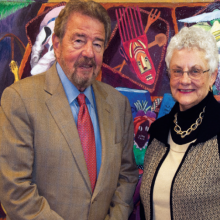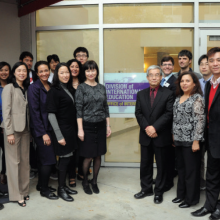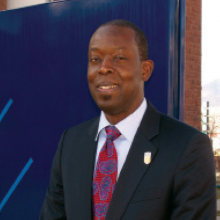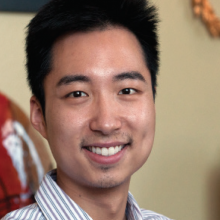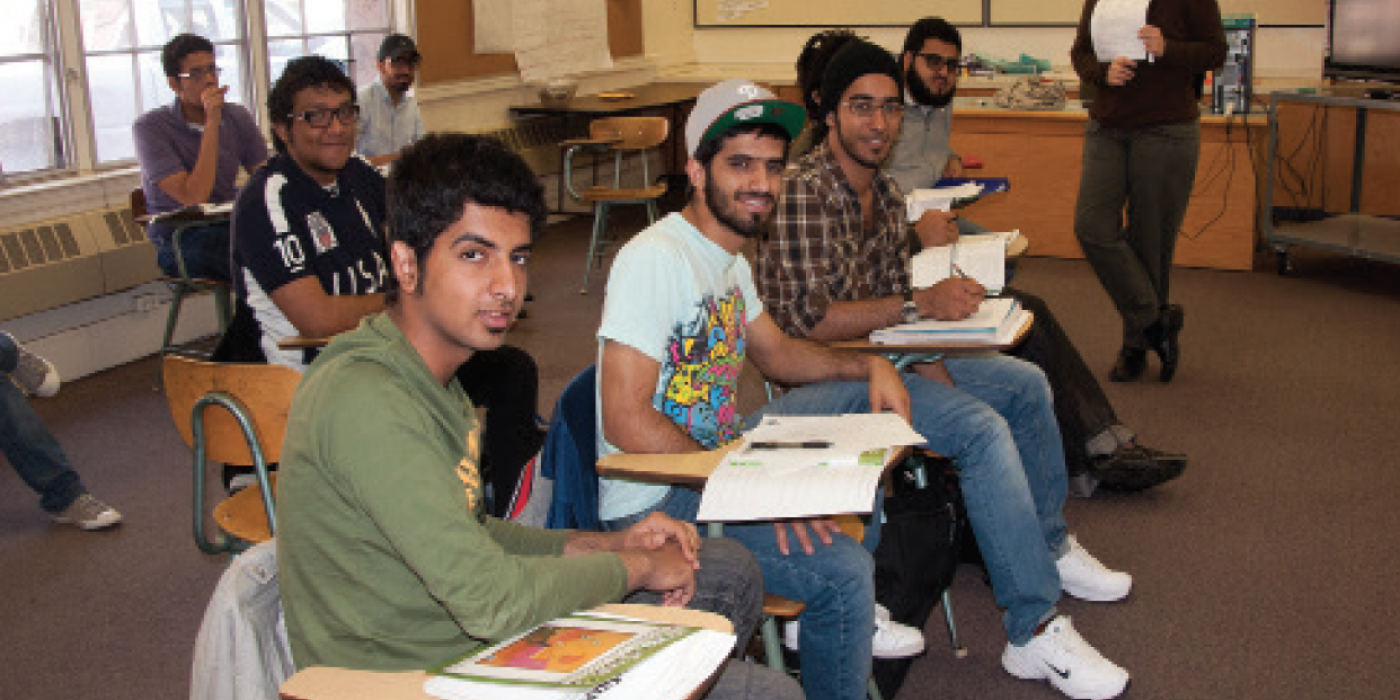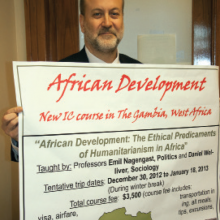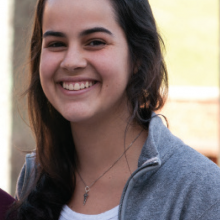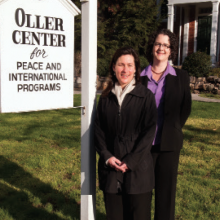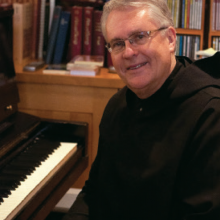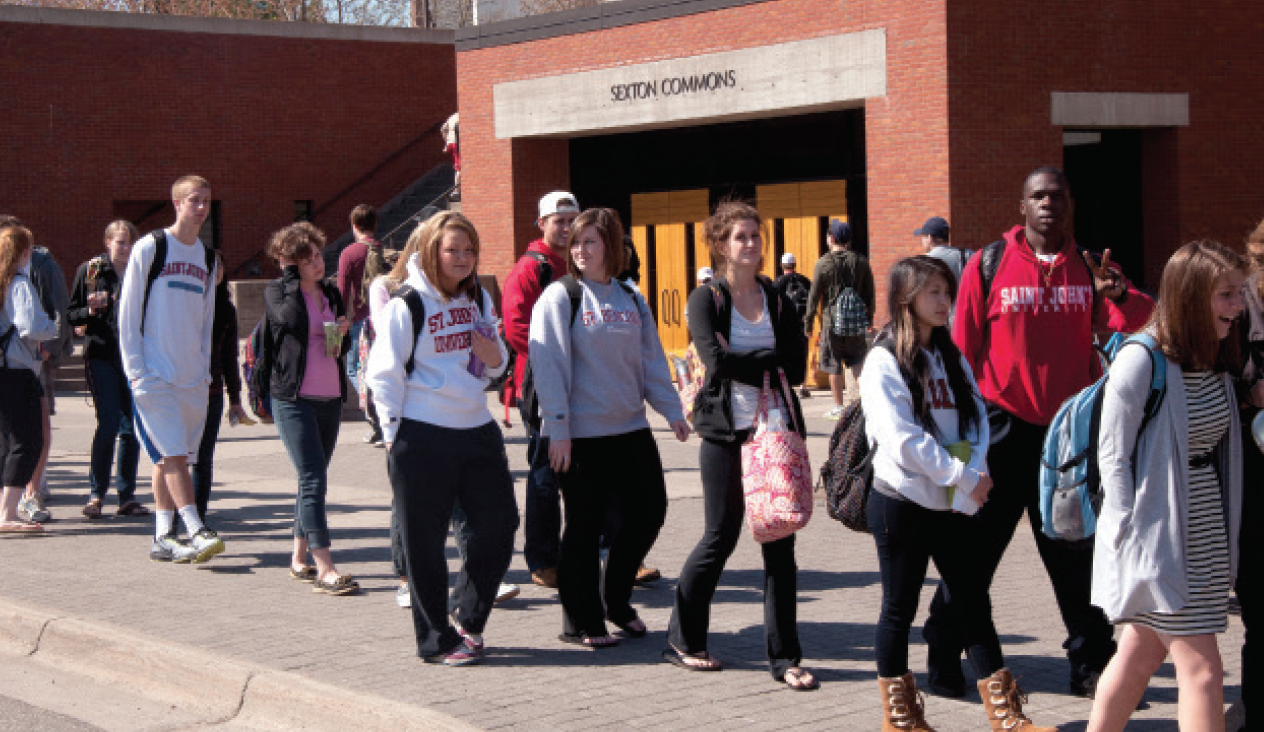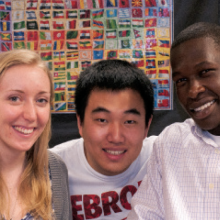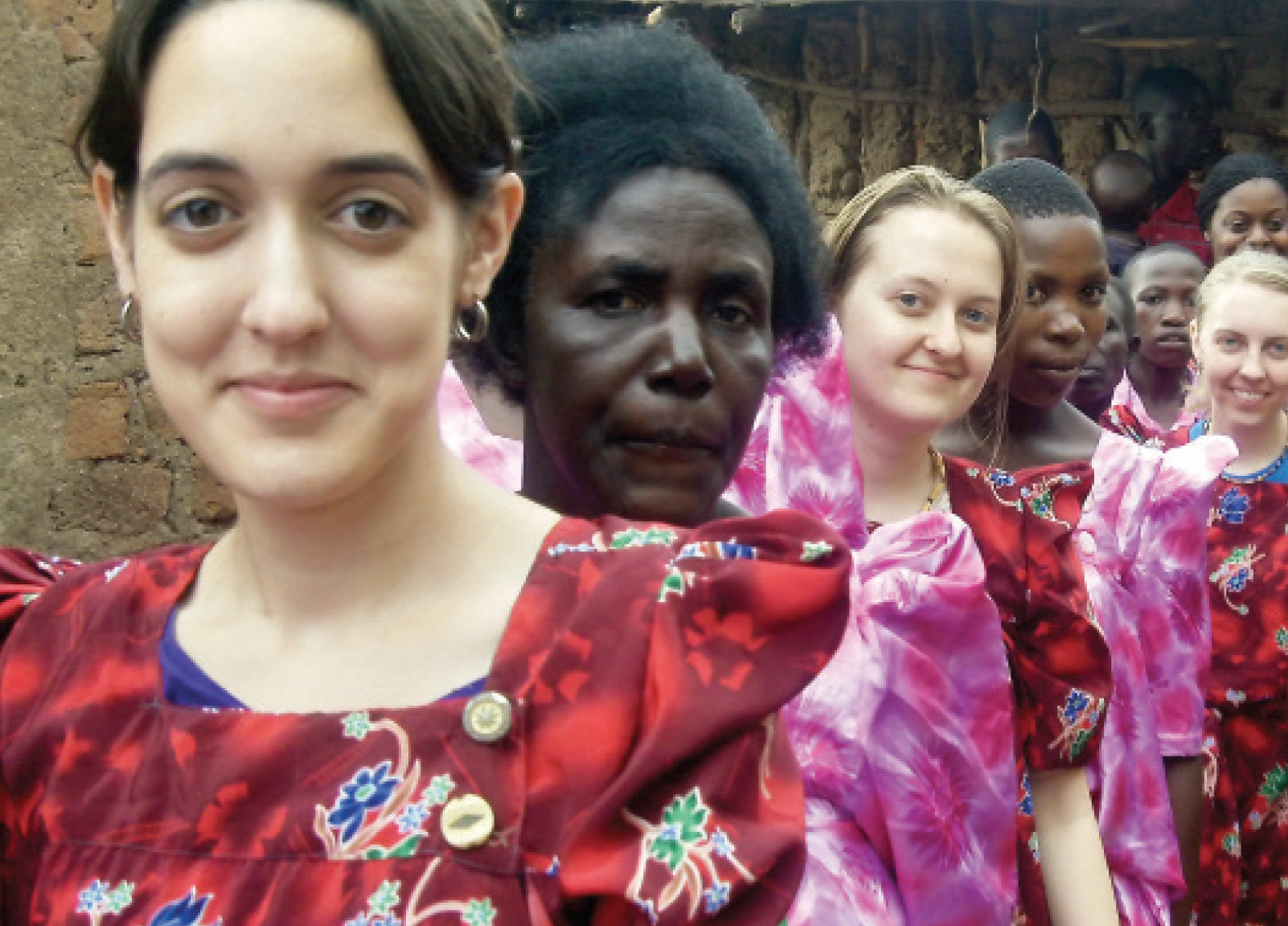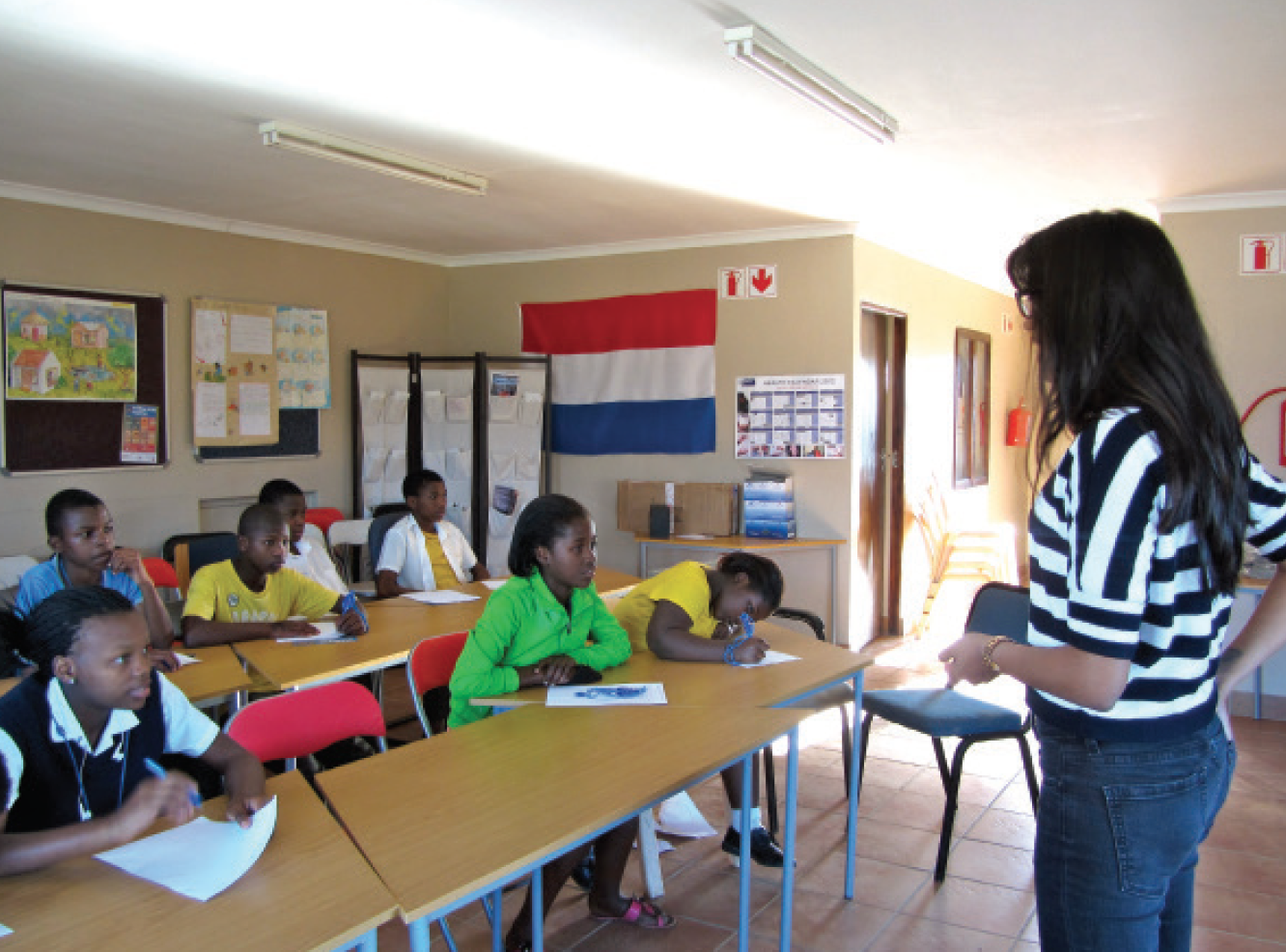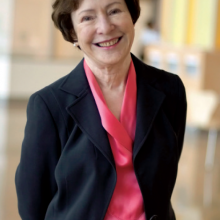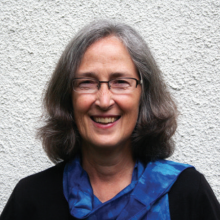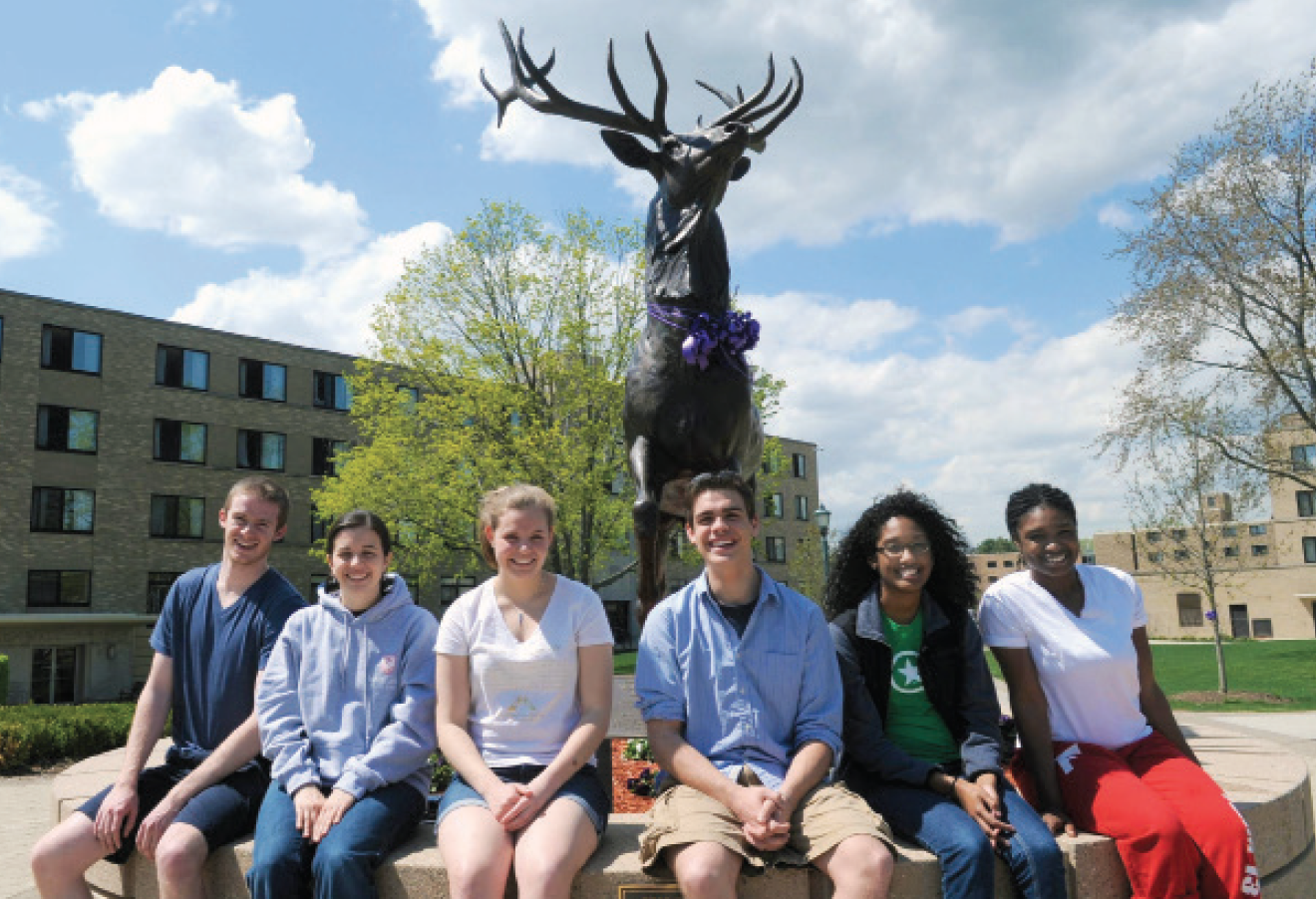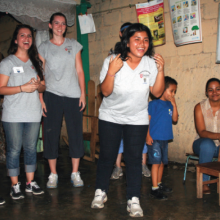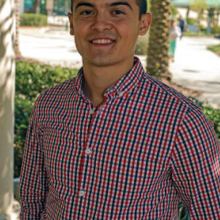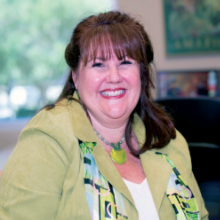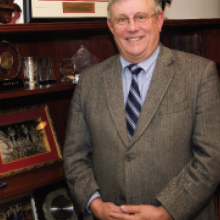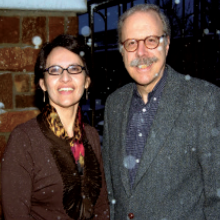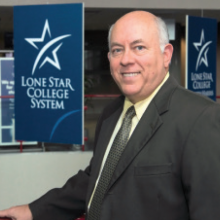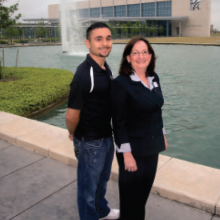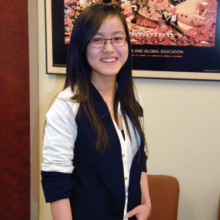2012 Comprehensive San Francisco State
It’s no surprise that San Francisco State University (SF State) is a magnet for international students. The green campus sits in a tranquil corner of one of the world’s most enticing cities, with Muni trolleys running up to its door and the Pacific Ocean beckoning a mile away. It has ranked in the top five in international enrollments among master’s level institutions since 1996 and occupied first place three times according to the Institute of International Education’s Open Doors report. More surprising, this urban campus is second in the country in another category: participation in year-long study abroad. Most of these students, like the large majority of all 25,000 undergraduates, are racial or ethnic minorities. “We have this huge mix racially and ethnically, and that’s who we send,” said Provost Sue Rosser.
A significant number are from disadvantaged backgrounds. They win dozens of Gilman Scholarships each year—176 in the past five years— and three-quarters of the nearly 450 SF State study abroad students receive aid in some form. Yenbo Wu, associate vice president of international education, said, “We have proven that you can study abroad even if you’re not super rich.” David Wick, coordinator of study abroad services, said, “We’re doing some pretty unique things to make study abroad possible for very diverse, very low income, transfer, and older student populations.” The drive for diversity is a widely shared passion at SF State (both Wick and Marilyn Jackson, assistant director of international programs, wrote doctoral dissertations addressing education abroad issues for students of color). The campus is home to the nation’s first and only College of Ethnic Studies, created after a prolonged student strike during the antiwar and civil rights ferment of the late 1960s. The distinctive-looking student center, topped by tilted pyramids, is named for Cesar Chavez, the farm workers’ leader, and it faces Malcolm X Plaza. “We’ve gone beyond diversity. We are a campus for social justice and equity,” said Dean of Students Joseph Greenwell.
Senior Albert (A.J.) Burleson, who grew up in impoverished, historically black Hunter’s Point, started college years ago and even earned a track scholarship at Cal State University, Fresno, but left far short of a degree. He found much greater success at SF State where he completed a bachelor’s degree in sociology and international relations after spending a year at the University of Amsterdam on a Gilman Award. Burleson’s resume includes work on filmmaker Kevin Epps documentary Straight Outta Hunter’s Point. He became a peer mentor in the international programs office after returning from the Netherlands. “I received so much aid and support, and me coming from the inner city, I see it only fitting that I return the favor by helping others access study abroad,” said the 35-year-old. Another peer mentor, senior Jordan Brown, 26, a broadcasting and electronic media major who grew up in Sacramento, used his Gilman to study at the University of Tübingen and the Hochschule der Medien in Stuttgart, Germany, and headed to Ghana after graduation to complete a documentary. Brown successfully navigated art and media classes taught in German after one course in San Francisco and six weeks of language classes in Germany. “That was intense, but good,” said Brown, who is weighing a possible return to Germany for graduate school.
Thriving Despite Economic Challenges
SF State has moved forward with its internationalization efforts during a period of prolonged austerity and budget crises for California’s public institutions. When Yenbo Wu arrived in 2000 to take charge of the Office of International Programs, it had a 10-person staff. By 2007, when President Robert Corrigan, a stalwart supporter of internationalization, elevated Wu to the new position of associate vice president for international education, the staff had grown to 20. A hiring freeze subsequently cost the office two of those positions. A new international student adviser hired in spring 2012 was the first addition to the staff in two years. Corrigan, who retired in July 2012 at age 77 after 24 years, said he felt an obligation to ensure that the international students who enroll in such large numbers have a good experience during their years on the urban campus, including academic advice, mentoring, and opportunities to interact with faculty outside the classroom. Corrigan’s successor is Leslie Wong, former president of Northern Michigan University.
Cuts in state aid have led to greater class sizes at SF State, especially in departments depleted by the loss of 100 faculty jobs to attrition. A university planning advisory council that Corrigan appointed to address the budget challenges expressed strong support for “the university’s commitment to internationalization and the benefits that international programs bring to our students.” It also applauded efforts by the Office of International Programs (OIP) “to maximize flexibility and efficiency” and took note of “the financial advantages associated with strategically recruiting international students.” International students bring their global perspective and the numbers needed to develop new programs. In the economics department, which had lost five of 14 faculty members, Sudip Chattopadhyay, the chair, spearheaded the creation of a dual-degree master’s program with Xiamen University that brings to campus a cohort of 30 Chinese students, fully funded by their government, and sends SF State faculty to teach at Xiamen in the summer. “We have to be very innovative as to how we offer the same curriculum with reduced resources,” Chattopadhyay said.
A Stellar Faculty, a Welcoming Community
Since fewer than 400 domestic students come from outside California, the international contingent makes an outsize contribution to campus diversity. “We’re not Stanford or Berkeley, but this is a university that’s right for most students, not just in the United States but the world,” said Wu, a native of Beijing. The location and SF State’s mission also help attract a stellar faculty. Rosser, a zoologist and women’s studies scholar who previously was Georgia Tech’s first female dean, said, “We’re really quite fortunate in the caliber of faculty we’re able to attract.”
“We’re not Stanford or Berkeley, but this is a university that’s right for most students, not just in the United States but the world.”
San Francisco, the city that gave birth to the United Nations, is home to a polyglot population. “We don’t have to do much of a marketing job for San Francisco,” said Jay Ward, the OIP associate director who has directed international student services since 1994, when there were 1,000 international students. Counting those on Optional Practical Training, SF State now has more than 2,400. With a third adviser now on board, Ward hopes to extend office hours and expand programming “to the way it was before.”
Koichiro Aoshima, the Japanese-born coordinator for international student services and outreach, recalled that on the day he first set foot on campus in 1998, “a guy came up to me and asked for directions. He thought I was from here. You just blend in.”
Aoshima and Mei-Ling Wang, coordinator of international student advising, advise hundreds of international undergraduate and exchange students. When speaking with new arrivals, Wang always keeps in mind how she felt as an 18-yearold freshman at Drexel University in Philadelphia, fresh from Taiwan. “It isn’t easy. You struggle with the language. I was even afraid to go to grocery shop. I didn’t know how to order a sandwich. ‘Why do they have so many choices?’” she recalled. “You really have to be patient with these students.”
Incubating Student Leaders
There are 26 international clubs at SF State. The largest by far is the 1,800-member International Education Exchange Council (IEEC). It includes the hundreds of exchange students who come to SF State each year, droves of U.S. students preparing for or newly returned from study abroad, and other students drawn by dozens of weekly events including sports events, film nights, and language exchange partnerships. The council affords ample opportunities for leadership training with nearly 100 officer positions, including co-U.S. and international presidents.
Eric Ostlund, 24, a graduate student from Uppsala University, Sweden, studying law, economics, and criminal justice, said, “The IEEC is very different from anything you’re likely to find anywhere else, just in terms of sheer size and magnitude and all the different things we do. We’re one of the few environments where if you have an idea and you want to do it, you actually can.”
Ostlund was co-president with Linda Carter Nguyen of Alameda, California, whose Vietnamese immigrant parents named her after the actress who played Wonder Woman, from a television show they watched to learn English. Nguyen joined the IEEC to meet French students on campus before her semester in Paris. “I kind of corralled all the French people on campus and said, ‘Be my friend, take care of me.’ So when I went to Paris, that’s what they did. They picked me up in the airport. They introduced me to their friends,” she said. Flying back home, the liberal studies major resolved “to be more involved in the IEEC to keep this international dream alive.”
IEEC students are a familiar sight on campus—staffing a study abroad table on the quad, distributing flyers, and organizing events and activities. They also raise funds for scholarships. Noah Kuchins, the IEEC adviser, works to connect all incoming students with buddies “before they set foot on campus.” He finds prospects when they inquire at the OIP about education abroad. His pitch: “You’re interested in studying in Japan and we’ve got 30 Japanese students coming next semester. Would you want to welcome one of them?”
Exchange Brings Opportunities
Students can choose among 115 study abroad programs in 28 countries. SF State has 55 bilateral exchanges of its own and offers 51 more through the California State University international programs office. Exchanges bring international opportunities to every department, including SF State’s undergraduate cinema major. Since 2010 Weimin Zhang, an associate professor and awardwinning documentary filmmaker, has led the International Documentary Workshop in Shanghai, China, each summer in partnership with Xiejin Film and Television College at Shanghai Normal University. She brought the first dozen SF State students to Shanghai in June 2010 to collaborate with a dozen Shanghai Normal students over three weeks to conceive, write, and film four 10-minute documentaries on unusual aspects of life in China, including the local hip hop scene, housing shortages, and migrant workers’ struggles. The students overcome language barriers. Zhang, a graduate of the Beijing Film Academy, said, “Even I was surprised they can make a film in a language they don’t even know.” President Corrigan, who visited the first workshop, marveled that students shared “a common language of film.” The Shanghai film school also sends several students to San Francisco for a semester each term.
General Education Includes Global Perspectives
All undergraduates must fulfill a cultural, ethnic, or social diversity requirement. Some 300 courses already contain significant international content. Paul Sherwin, dean of the College of Liberal and Creative Arts and formerly dean of humanities, believes a forthcoming general education change will quadruple student enrollment to 4,000 in courses offering comparative study of global issues and regions. “The curriculum already has changed drastically in almost all majors,” even in his own field of English literature, said Sherwin, pointing to a recent hire who teaches a course on Shakespeare’s influence on India’s Bollywood.
“We’re creating global citizens,” said history professor Trevor Getz, an Africa specialist whose popular courses serve as a feeder to education abroad programs in Ghana and South Africa. “It’s not just important that we send our elite abroad. This country does a pretty good job of that. It’s equally important that the kinds of students that we have here are able to have that experience.”


